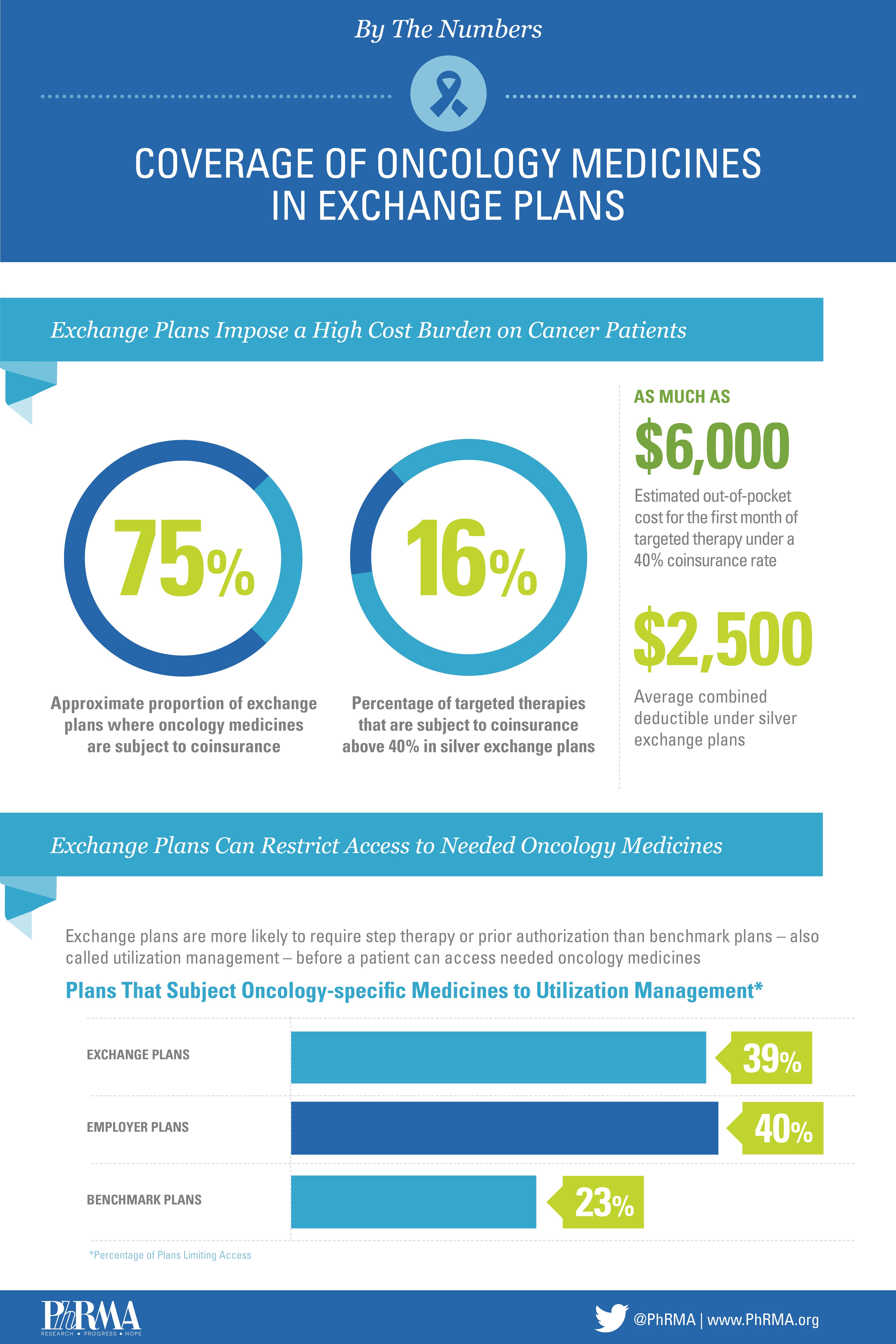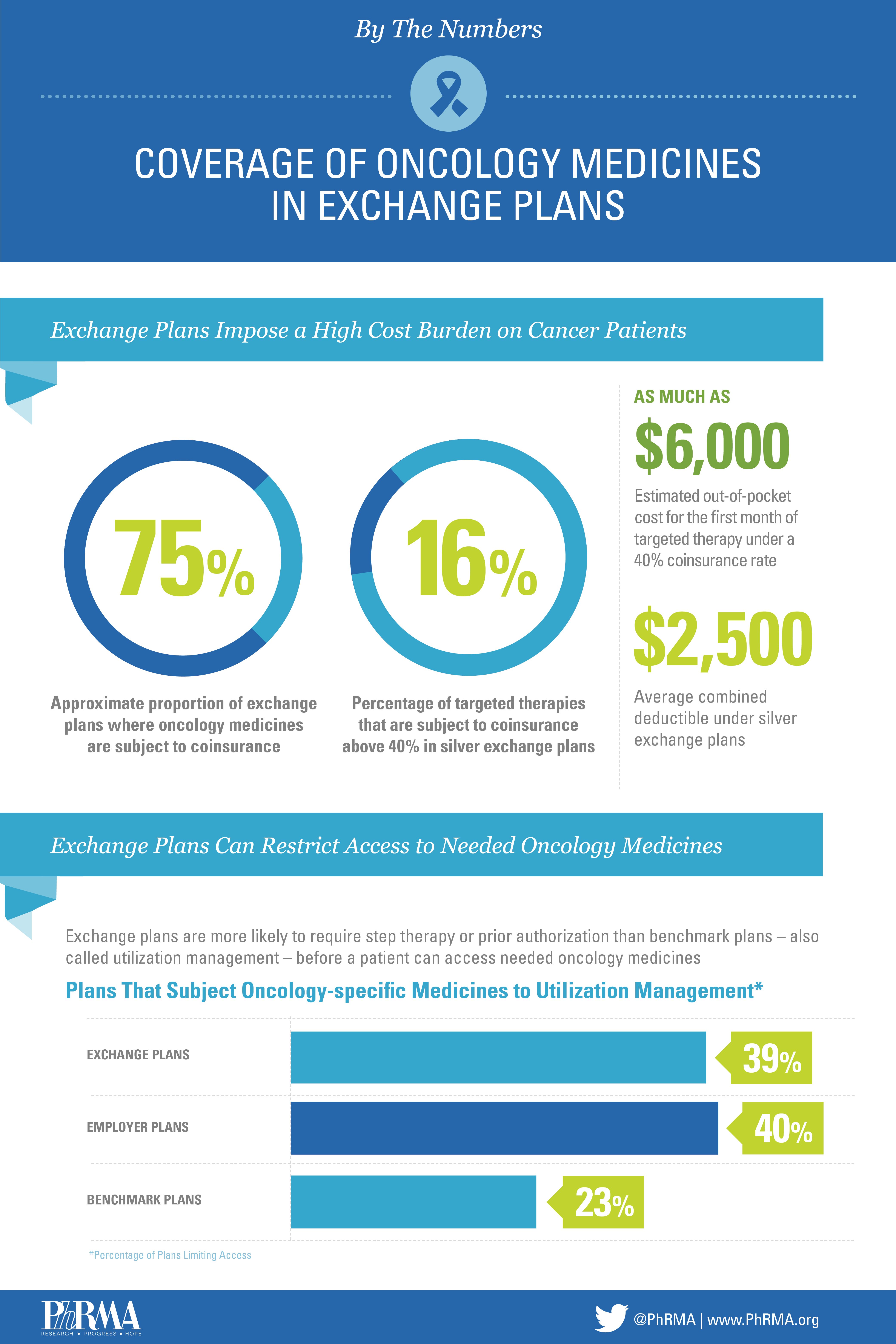In recent years, new cancer treatments have transformed the lives of individuals diagnosed with the devastating disease. Cancer death rates have fallen 20 percent since their peak in 1991, and the number of survivors increased from 3 million to nearly 12 million survivors between 1971 and 2008. As patient Susan Gubar noted, she benefitted from the innovative medicines developed from “new science” to help keep her ovarian cancer at bay. Having benefitted from her treatment moving rapidly through the phases of research and development (R&D), Gubar is hopeful that the continued development of medicines will help future patients live longer, happier lives.

Still, access to these innovative, new treatments is critical. The Affordable Care Act (ACA) was designed to help patients access needed medicines, but health insurance exchange plans are making it difficult, especially for patients with chronic conditions or diseases like cancer. Without access to necessary treatments, the hope that patients with cancer can manage or cure their condition could be shattered.
Health insurance exchange plans include unnecessary barriers to needed medicines due to high out-of-pocket costs and limited treatment options. For example, many plans have a global deductible for treatments and other services, which means a cancer patient must pay as much as $4,300 out-of-pocket before anything is covered. Furthermore, high coinsurance may result in a patient paying as much as 40 percent out-of-pocket for a single medicine; that could be as much as $6,000 in just the first month of coverage. High costs like these threaten patient adherence which can lead to severe and sometimes fatal health disparities.
What could be even more devastating for cancer patients is that they are not guaranteed access to the oncology medicines they are currently taking when transitioning to health insurance exchange coverage. For medicines without a generic equivalent, fewer than 3 in 5 medicines are covered in 13 of the 15 states with the highest exchange plan enrollment.This leaves patients with limited treatment options and nowhere to turn.
Despite tremendous progress in R&D, we still have a long way to go. Cancer remains the second leading cause of death by disease in the U.S., and without access to needed treatments, health insurance exchanges plans are creating an undue burden on oncology patients and making it more difficult to be hopeful for a more promising future.
We hope to continue the conversation regarding patient access to needed cancer treatments and the progress we’ve made in the coming months, and we’re looking forward to learning more from experts at the Turning the Tide Against Cancer conference on October 9th in Washington, D.C. In the meantime, follow us on The Catalyst, Twitter and Facebook for more and check out our fact sheets and state-by-state information on what the exchanges mean for patients suffering from various chronic conditions.




